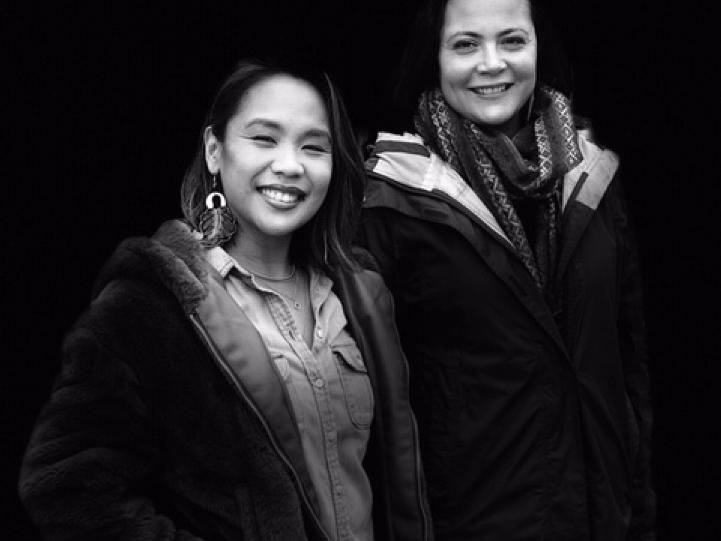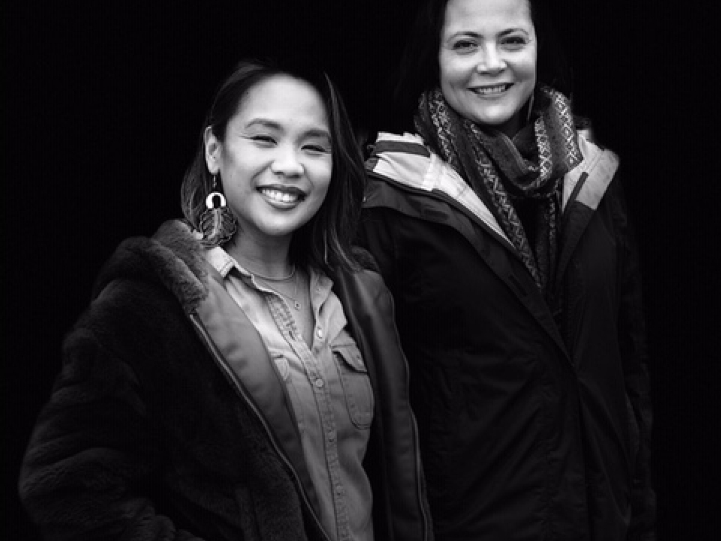
Scholar's Corner: A comadre/kumare commitment: Centering intentions and intergenerational connections as mama-teacher-scholars of color
Latinx/a/o
The NASPA Latinx/a/o Knowledge Community (LKC) strives to support the research and share stories of colleagues who are engaged in scholastic work, especially those who focus on Latinx/a/o educational issues. This year, the LKC co-chairs are highlighting the strength, resiliency, and tenacious nature of mujeres in the field who deliberately and wholeheartedly embrace both motherhood and their professional roles as scholars (#LatinaMamiScholar). We would love to feature your story on the NASPA LKC Scholars Corner!
If you would like to share with our communidad, please contact LKC Research and Scholarship co-chairs Claudia García-Louis (claudia.garcia-louis@utsa.edu) and/or Tracy Arámbula Ballysingh (tracy.ballysingh@uvm.edu).
--------------------------------------------------------------------------------------------------------------------------------
Elexia Reyes McGovern and Stephanie Cariaga met eight years ago, as they were transitioning out of the high school classroom and into academia. Since then, they have crossed paths in many ways: sharing the same mentors - Danny Solórzano and Dolores Delgado Bernal, raising children as they birthed dissertations, and now working together and re-imagining teacher education as Assistant Professors at California State University, Dominguez Hills.
--------------------------------------------------------------------------------------------------------------------------------

Comadres, Co-authors: Elexia Reyes McGovern & Stephanie Cariaga
Comadre. Kumare. These terms of affection and affinity describe the relationships we have forged as Chicana and Pinay mama-teacher-scholars. When you call another woman your “comadre” or “kumare,” there is an invisible and visceral agreement that you not only have each other’s backs, but the backs of your children, your families, your students, and your communities. Literally, comadre/kumare means “co-mother;” historically, it means “godmother,” someone you have chosen to help raise your child. We acknowledge our shared legacies of colonialism through these terms, while redefining them to name our commitments and collaborations as mama-scholars.
Reflecting upon Dra. Tracy Arámbula Ballysingh’s call for allyship and advocacy in supporting LatinaMamiScholars through the hidden costs of academia, we are pushed to write about our purpose as Chicana and Pinay mama-scholars within teaching, scholarship, and service within the home and work spaces—and how these intersections have re-birthed and shifted institutional cultures to better serve our communities. Here, we offer a glimpse into conversations we have had over the past few years in clarifyingthat clarify our intentions and reflecting on the inter-generational impact of our work.
Eight years ago, we were chosen by two dear friends to work together as classroom teachers in Los Angeles. These friends understood that we aligned ideologically and pedagogically in our critical praxis. We were both at pivotal moments in our lives, where we were torn between transitioning out of the high school classroom and into the world of academia. Eventually, we each entered our doctoral studies, carrying a bit of grief from leaving the classroom, yet still inspired by our love for young people.
We didn’t know it at the time, but this introduction began a fellowship that is seeded in intentionality, wellness, autonomy, and self-determination. As mama-scholars-kumares-comadres, we exist at the nexus of intergenerational connections, where our journeys have been paved by shared struggles of elders, while we continue to raise our children and mentor future generations of scholars and teachers.
We are part of and continue to benefit from the intergenerational work of valuing family within academia. In our mentor Dr. Daniel Solórzano’s Research Apprenticeship Course at UCLA, we would each bring our children with plenty of snacks and toys in tow, and a handful of colleagues ready to hold our babies or play with them so that we could be more present in class. We have been mentored by faculty who regularly bring their partners, parents, adult children, and grandkids to meetings, who fit their family drop-offs and pickups into their regular schedule. These exemplars helped us envision a world where learning is not compartmentalized, but intertwined with the home.
As mama-scholars of color, our teaching and scholarship paths have always included our families - whether it meant bringing our children to our own classes, or when, at a department meeting, Elexia shared policies to include in our syllabi to support and accommodate parenting and breastfeeding students. These were the first cultural shifts that we, together or separately—but always intentionally—have shifted spaces within academia. Our inclusion of our families was born out of necessity, with the unavailability of childcare or the need to bring babies or pause work to breastfeed and pump. And yet in these moments of necessity, of teaching with one of our children tucked inside the classroom podium, of navigating conferences and faculty meetings with our kids beside us, an opportunity for a shift in institutional culture emerged.
Another way we have practiced a kumare/comadre fellowship is thinking about the types of opportunities that we create for students that also welcome family as participants. In fall, 2019, Steph organized a series of workshops for our students to practice wellness and healthy boundaries, learn self-defense for women, and dance their stress away. One student brought his mother—a veteran teacher of 30 years—with him to a workshop on preventing burnout. In his own words, he expressed that he was able to learn about his mothers’ stressors over the years as a teacher, and learned ways to better care for his mother and himself. When Steph brought her children to the self-defense workshop for women, led by the Survival Arts Academy, students were surprised at Steph’s 6-year old daughter’s ability to engage in conversations around consent. At the AfroBeats Dance workshop led by Tulani Simone, students were impressed by both of our children’s (ages 1, 3, 6, and 9) ability to swiftly learn dance choreography. Because of our children’s participation in these workshops, our student eventually developed their own curriculum: one unit teaching elementary youth about the power of consent, and one unit for a physical education class that “dance is for everyone.”
We have also organized together in a grassroots teacher collective called the “People’s Education Movement.” Elexia curated a children’s box full of toys, books, crayons, and other goodies to intentionally ensure that our meetings welcomed families. Later, with other comrades from California State University, Dominguez Hills and California State University, Fullerton, we helped organize “A People’s Education Conference.” We intentionally opened the conference with a danza ceremony offered by pre-school youth and offered workshops to children and young people. Many of our students brought their own family members to attend.
In these ways, we intentionally create space for familial and intergenerational impact, which has fundamentally shifted the culture in our university by demonstrating that families powerfully contribute to learning and transformation. While we have not created these opportunities alone, our collective voices as comadres/kumares has shifted a long-maintained western institutional culture of individuality to one of collectivity.
As mama-teacher-scholars of color, we also know the burden of cultural taxation and the struggles of teacher burnout and pushout. Doing this work with intention in our institutions and families can be heavy at times. But we also recognize that our particular lens as mama-teacher-scholars helps us recognize the importance of self and collective care, and motivates us to practice what we teach. “Do you have capacity right now?”, “What do you need?”, and “How can I support you?” are questions that we constantly ask of each other, while “Let’s check in after I put the kids down to sleep,” or “I can’t attend that event, but can you take notes for me?” are ways we practice transparency and reciprocity. These self and collective care practices can be messy and constantly in process, but they have been integral to keeping us afloat on the tenure track and maintaining our focus on who and what we truly care about in our work.
Our strength as mami-scholars is born out of a collective vision that must include families, rather than separate them. Our strength comes from intentionally organizing and collaborating with like-minded comadre/kumares and shifting the culture of institutions that were not designed for us towards autonomy, intergenerational learning, and sustainability. As comadres/kumares, we know intimately the demands of home, work, and everything in between - which necessitates us always thinking about wellness and care. We strive towards a world in which we cultivate care for our children, families, students, and communities, carve out space to mother ourselves, and receive back the care that we effortlessly give to others. It is these commitments shared here that we offer to serve as a reminder of our comadre/kumare-ship—our intention with knowing we are here for and with one another, our families, and communities.